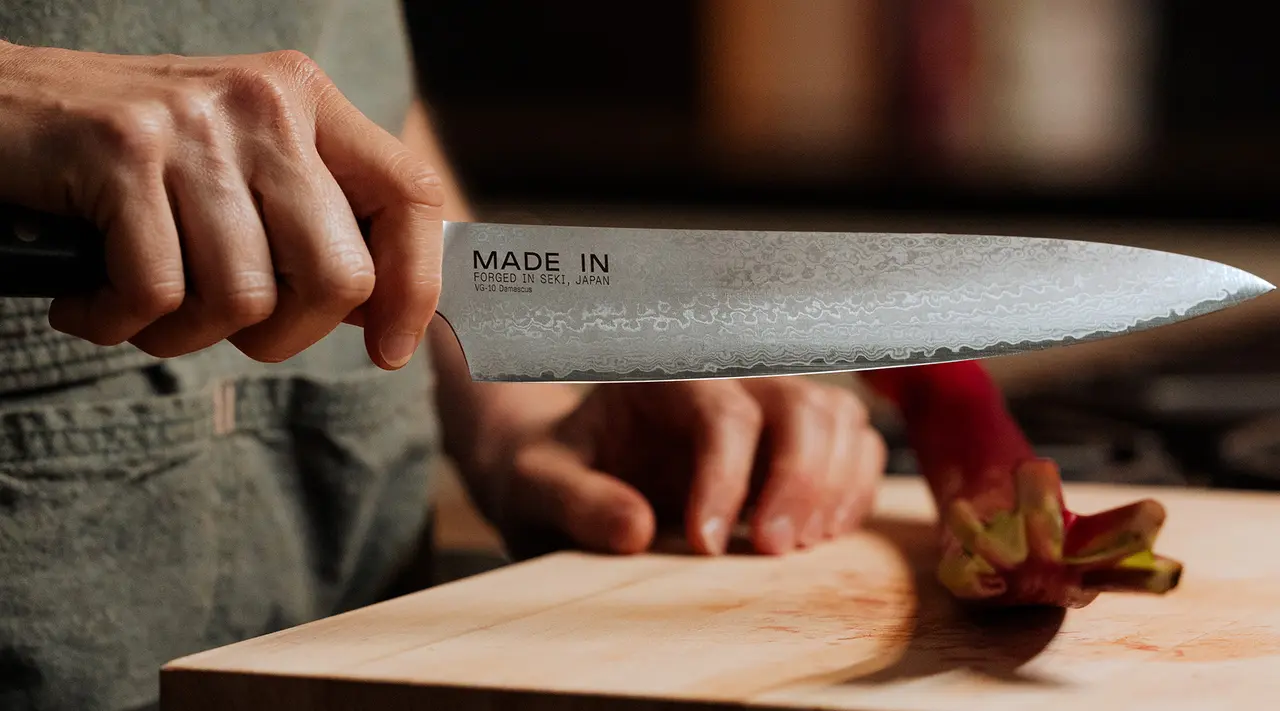For those who wield knives daily, understanding the balance and weight of German knives is not just a matter of preferenceit's a necessity. As a kitchen professional, the nuances of a knife's balance can greatly affect your efficiency and precision in the kitchen. This in-depth exploration aims to guide you through the intricacies of these critical aspects of knife design, enhancing your culinary expertise.

The Importance of Knife Balance
When we speak of a knife's balance, we refer to how the weight is distributed from the tip of the blade to the end of the handle. A well-balanced knife allows for more control and less fatigue, which is crucial during long hours of preparation. German knives are renowned for their impeccable balance, which is achieved through meticulous design and craftsmanship.
Balance is typically determined by the knife's center of gravity. Ideally, this point should be located where your hand grips the knife. This ensures that the weight is evenly distributed across your hand, thus enabling more precise cuts. To learn more about the differences in balance between German and other types of knives, you can visit this insightful comparison of German and Japanese knives.
Understanding Weight: Heavy vs. Light Knives
The weight of a knife plays a significant role in its functionality. German knives are often heavier compared to their Japanese counterparts, providing a substantial feel that many chefs appreciate for its ability to assist with cutting through tough ingredients. The heft of the knife can provide momentum, making chopping and slicing more efficient. However, a heavier knife may require more strength and can lead to fatigue if not used properly.
On the other hand, lighter knives can be advantageous for delicate tasks such as filleting fish or finely chopping herbs. The choice between a heavy or light knife often comes down to personal preference and the specific kitchen tasks at hand. More insights on choosing the right knife weight can be found in this guide to high-end folding knives.
Design Elements Influencing Balance and Weight
The design of a German knife is integral to its balance and weight. Factors such as the blade's thickness, the material of both blade and handle, and the overall construction contribute to the knife's feel and performance. The bolster, a thick junction between the blade and handle, is a distinguishing feature in many German knives that adds to their weight and balance.
Materials like high-carbon stainless steel are commonly used in German knives for their durability and easy maintenance. The handle materials, whether wood or composite, also affect the knife's weight and grip. A well-designed handle ensures comfort and a secure hold, which is essential for maintaining balance during use. For more on the materials used in German knives, check out this historical overview of German knife-making.
Choosing the Right Knife for Your Needs
As a kitchen professional, selecting the right knife involves considering the balance and weight in conjunction with your specific culinary tasks. A versatile chef's knife is a staple in any kitchen, but specialized knives may be required for tasks like boning, slicing, or filleting. When purchasing knives, it's essential to have a clear understanding of your needs and preferences. For guidance, you might find this guide on buying German knives online helpful.
Ultimately, the best knife is one that feels like a natural extension of your hand, offering the perfect balance and weight for your cooking style. Testing different knives to find the ideal balance and weight is a worthwhile investment in your culinary toolkit.

FAQs
What is the ideal weight for a German knife?
The ideal weight varies based on personal preference and the specific task. Generally, German knives are heavier, which aids in cutting tough ingredients.
How can I test a knife's balance?
To test balance, hold the knife at the bolster or where the blade meets the handle. A well-balanced knife should stay horizontal without tipping forward or backward.
Do heavier knives cause more fatigue?
Heavier knives can cause fatigue if used improperly, but they also provide momentum that can make cutting easier. It's essential to use proper technique to minimize fatigue.


























